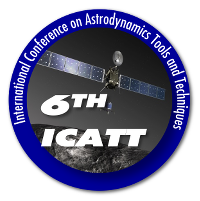Speaker
Dr
Alexander Wittig
(ESA Advanced Concepts Team)
Description
Optimal trajectories for spacecraft guidance, be it during orbital transfers or landing sequences are often pre-computed on ground and used as nominal desired solutions later tracked by a secondary control system. Linearization of the dynamics around such nominal profiles allows to cancel the error during the actual navigation phase when the trajectory is executed.
In this study, we assess the possibility of having the optimal guidance profile be represented, instead, by a deep artificial neural network trained, using supervised learning, to represent the optimal control structure. We show how the deep network is able to learn the structure of the optimal state-feedback outside of the training data and with great precision. We apply our method to different interesting optimal control problems, including the inverted pendulum swing-up and stabilization problem, a quadrocopter time and power optimal pin-point landing control problem and a time and mass optimal spacecraft landing problem. In all cases the deep network is able to safely learn the optimal state-feedback also outside of the training data making it a viable candidate for the implementation of a reactive real-time optimal control architecture.
We perform our study making use of the open source projects Space-AMPL, to compute the supervision signal, and Theano to train the deep network.
| Applicant type | First author |
|---|
Primary authors
Mr
Carlos Sanchez
(ESA)
Mr
Daniel Hennes
(German Research Center for Artificial Intelligence (DFKI))
Mr
Dario Izzo
(ESA)

